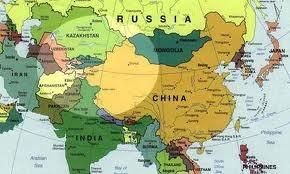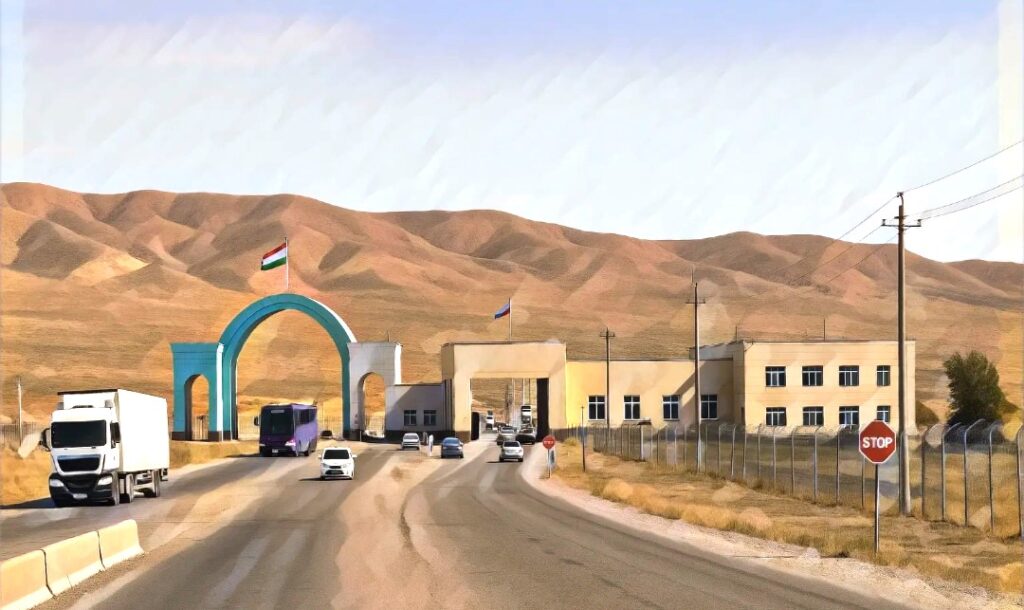BISHKEK (TCA) — The Times of Central Asia presents to its readers Stratfor’s Global Intelligence, a weekly review of the most important events that happened in the world — from Europe to Middle East to Russia to Central Asia to Afghanistan to China and the Americas.
The Week That Was
Who needs fireworks and candles to celebrate a birthday when you have a nuclear program? North Korean Leader Kim Jong Un turned 33 this week, and the young leader spent his birthday basking in the world’s reaction to North Korea testing a nuclear device for the fourth time. The jury is still out on whether North Korea actually tested a hydrogen bomb or a boosted variant of an atomic bomb, but the consequences are still remarkably and predictably uneventful. No country, including China, can control North Korea’s actions without triggering a larger political meltdown and no one for now is prepared to try that hard, either.
South Korea resorted to blasting Korean pop music and propaganda over loudspeakers to irritate their northern neighbor. The United States, Japan and South Korea will meanwhile proceed apace with their deepening trilateral security cooperation in the region, much to Beijing’s chagrin. In the shorter term, the nuclear test will allow Kim Jong Un to assert his leadership ahead of the Workers’ Party conference in May. In the longer term, North Korea will use its developing nuclear capability to demonstrate that sanctions and isolation are ineffective as it tries to coerce a peace accord, or at least recognition of a North Korean nuclear program to retain its deterrent value. This will be a hard political sell in Washington, but it will also be several years before North Korea is within reach of developing a viable miniaturized warhead and delivery system.
The North Korean nuclear test ended up doing little to detract attention from China’s economic fumbling. Most attention was fixated on the utter failure of a new “circuit breaker” policy to prevent stock market plunges, but the more compelling story lies in China’s record drawdown in foreign currency reserves to manage the yuan’s value as China wrestles with capital flight. As China’s leadership struggles to manage the economic decline, the political fault lines within the Communist Party will become more visible. China’s Central Commission for Discipline Inspection, the country’s anti-corruption watchdog, is already heavily stressing the need to root out factions and ringleaders. This fits into Stratfor’s forecast, which predicts increased factionalization within the party in the lead-up to the 19th Party Congress in October 2017.
China’s economic trouble is one of several factors pointing to an impending scenario of oil prices dipping below $30 per barrel. Brent crude oil, the global benchmark, closed trading Jan. 8 at $33.37, reaching the lowest level since the summer of 2004. This is new low comes even before Iran has finalized a nuclear deal that will enable it to add another 500,000 barrels per day to the markets. With the finalization of the nuclear deal possibly just days away, we are bracing ourselves for some serious volatility worldwide, with a special focus on countries like Venezuela, Iraq, Algeria, Saudi Arabia, Iran, Kazakhstan, Russia, Nigeria and Angola who are all being driven toward more extreme measures to cope with the falling price of oil.
Even a week of tit-for-tat blows between Saudi Arabia and Iran over Riyadh’s move to execute Shiite cleric Nimr al-Nimr were not enough to raise the price of oil. It’s no surprise that tension between Iran and its Sunni adversaries are escalating, but this is a battle that will be waged through proxies because neither Iran nor Saudi Arabia are prepared for a hot conflict. Saudi Arabia is not only more assertive in the foreign policy realm, but is also exploring some bold options to reform the economy amid the global oil supply glut. In a highly unusual and lengthy one-on-one interview with The Economist, Saudi Deputy Crown Prince Mohammed bin Salman gave an interview in which he discussed various ways his country is considering to liberalize the economy. These measures include selling shares of Saudi Aramco as part of the country’s privatization drive. Notably, Aramco issued a statement a day following the interview confirming that the company is exploring options to list on capital markets. This would very likely be limited to the downstream sector in petrochemicals and refining, which Saudi Arabia will be more willing to invite foreign participation. We can expect any liberal economic moves out of Saudi, from imposing taxes to cutting subsidies to privatization, to take place in careful, measured steps. Still, Mohammed bin Salman has been subject to a lot of scrutiny in the Saudi kingdom. If he is perceived as taking the country down a perilous path, we could see more visible resistance build within the royal family to the king’s succession plans.
Full Articles
Who Wins and Who Loses in a World of Cheap Oil
Oil is the most geopolitically important commodity, and the ongoing structural shift in oil markets has produced clear-cut winners and losers. Between 2011 and 2014, major oil producers became accustomed to prices above $100 per barrel and set their budgets accordingly. For many of them, the past 18 months have been a period of slow attrition. And with no end in sight for low oil prices, their problems are going to only multiply.
The High Stakes of Having a Job in China
Understanding employment is fundamental to understanding how contemporary China works. The need to maintain near-universal employment — or at least the appearance of it — forms the bedrock of Chinese political economy, structuring the financial system, long-term industrial policy, the incentive structure for bureaucrats and everything in between. But a number of recent developments bode ill for China’s industrial sector and social and political stability across the country in 2016.
Why Energy Will Determine India’s Future
As India seeks to join the ranks of great powers in the 21st century, energy will play a critical role in its ascent. The country’s fast-growing economy and young, urbanizing population will place tremendous stress on its inadequate energy infrastructure as demand for energy resources continues to rise. Meanwhile, the gridlock in parliament that has so far stifled Indian Prime Minister Narendra Modi’s efforts to pass key pieces of legislation will impede his attempts to reform the energy sector as well. In the end, India’s demographic dividend has the potential to ensure a bright and prosperous future for the world’s largest democracy — but only if the lights stay on.
For Greece, 2016 Brings New Challenges
In the days ahead, the Greek government will begin another round of complex negotiations with its creditors and political parties on a new phase of economic reform. At the center of the talks will be a plan to restructure the country’s pension system, a particularly sensitive issue given that pensions form one of the last social safety nets left standing in a country where at least a quarter of the active population is unemployed. Though the risk of a Greek default or exit from the eurozone will be lower in 2016 than it was in 2015, the threat of social unrest and political volatility will loom large.
China: The Dilemma of International Intervention
China’s massive economic expansion since the end of the Cold War has transformed it from an isolated and impoverished country to a major actor on the world stage. But growth has introduced vulnerabilities, and Chinese economic security interests are now scattered far and wide. At the same time, China has come to see itself as a great power — and one that deserves a military commensurate with this status. Protecting its interests abroad and supplementing economic influence with military influence, however, will require massive changes to the current system.
The Week Ahead
According to the Libya Political Agreement signed Dec. 17 in Tunis, a new unity government, called the Government of National Accord, will come to power Jan. 16. While the competing Tripoli-based General National Congress and the Tobruk-based House of Representatives have failed to pass the agreement, its official inauguration will provide the political and legal foundation necessary for a Western coalition intervention against the Islamic State threat in Libya around the Gulf of Sidra. We will watch in the week ahead to what extent there is municipal, tribal and regional buy-in to the unity government, but so long as the United Nations recognizes some semblance of a government in Libya, we are one critical step closer to seeing a foreign intervention take shape.
The Greek government will spend the coming week trying to convince its creditors that it deserves to receive the next tranche of its bailout program. Athens also hopes to start negotiations over debt relief. Finance Minister Euclid Tsakalotos will visit Italy, Portugal, France, Finland, the Netherlands and Germany between Jan. 8 and Jan. 13. The creditors will begin an assessment of the Greek bailout in late January. By that date, Athens is expected to introduce reforms in its pension system, a move that could trigger political instability and social unrest.
Negotiations will begin Jan. 13 between the Argentine government and bondholders demanding full payment on defaulted bonds from Argentina’s 2001 foreign debt default. Any negotiation on the subject of debt with these bondholders, known colloquially as “holdouts,” will likely be gradual. The negotiations, which were not politically feasible for the previous presidential administration, are an important first step for Argentina to regain increased access to foreign capital markets and improving foreign investors’ views of the country.
Negotiators between the Revolutionary Armed Forces of Colombia (FARC) and the Colombian government will restart peace discussions Jan. 12. The government has been holding talks with the country’s largest leftist militant organization since Sept. 2012. This stage of negotiations is different because the two sides will remain in session with the intent of reaching a peace agreement by late March. After the two sides reach an agreement, there will be movement to demobilize FARC members in the field and hold a nationwide referendum to approve the deals.
On Jan. 16, Taiwan will hold general elections in which the opposition Democratic Progressive Party is predicted to win both the presidency and a majority of the legislature. The likely Democratic Progressive Party victory reflects the Taiwanese electorate’s unease with 8 years of deepened economic integration with China under President Ma Ying-jeou of the ruling Nationalist Party. This may lead to increased strain in relations with mainland China because Beijing sees the Democratic Progressive Party as in favor of declaring independence. However, at least in the short them, the party is unlikely to take drastic measures to undo existing policies toward China.
Indian Foreign Minister Subrahmanyam Jaishankar and his Pakistani counterpart Aizaz Ahmad Chaudhry are scheduled to hold talks Jan. 15 in Islamabad to discuss joint-cooperation in Afghanistan and enhancing bilateral dialogue. However, those talks are now in question in the aftermath of the Pathankot Air Base attack in India, which New Delhi believes was executed by militants hailing from the Pakistan-based militant group Jaish-e-Mohammed citing intelligence it delivered to Islamabad this week. Next week will be a critical juncture for Pakistan, which has been accused in the past of using proxies to undermine India. Islamabad now has the option of arresting Jaish-e-Mohammed head Maulana Masood Azhar and take other concrete actions against the militant organization.









